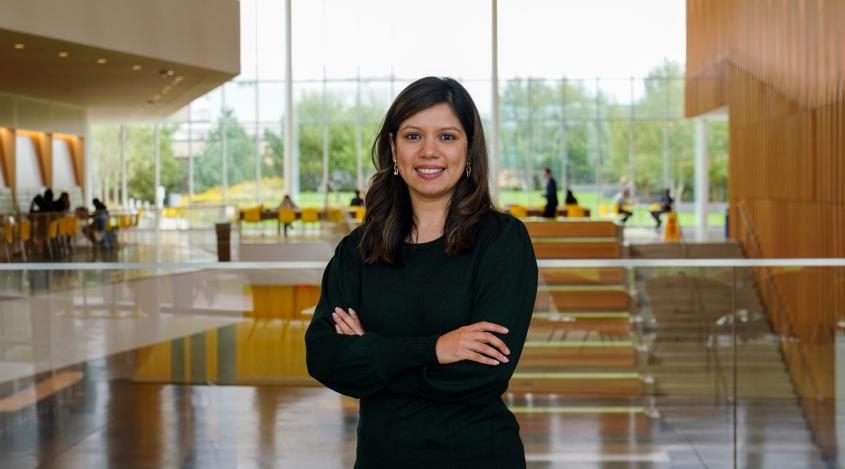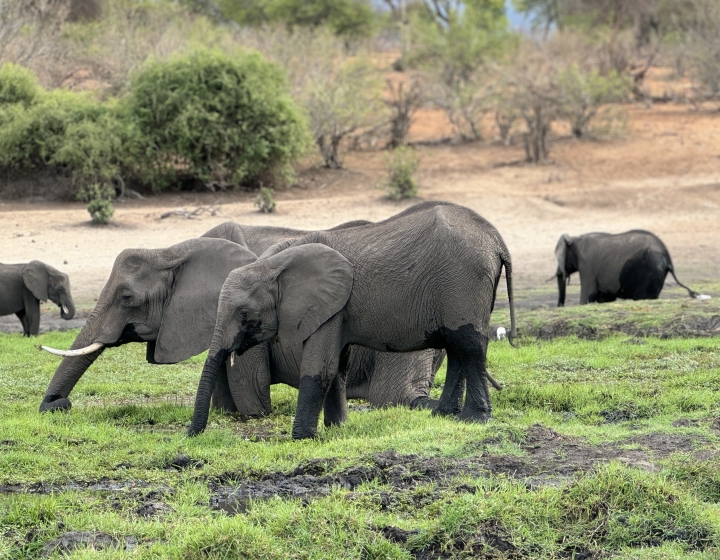Judy Appleton, Ph.D. Early Career Excellence in Research Award supports inaugural recipient’s work in cancer biology
Dr. Anushka Dongre, assistant professor in the Department of Biomedical Sciences at the College of Veterinary Medicine (CVM), is the inaugural recipient of the Judy Appleton, Ph.D. Early Career Excellence in Research Award.
The award was established last year thanks to a generous gift from Geoff Letchworth, D.V.M. ’72, Ph.D. ’80 and provides significant resources for an assistant professor early in their career to add staff or necessary materials to their lab. It is named in honor of Dr. Judy Appleton, Emeritus Alfred H. Caspary Professor of Immunology, who conducted groundbreaking research on helminth infections and served as vice provost.
“I extend a very warm congratulations to Dr. Dongre,” said Lorin Warnick, D.V.M., Ph.D.’94, Austin O. Hooey Dean of Veterinary Medicine. “Her promising work continues the legacy of excellence in research that is embodied by Dr. Appleton and supported thanks to the vision of Dr. Geoff Letchworth.”
Letchworth himself benefited from an early career scholarship for his work in virology at the University of Wisconsin-Madison and later went on to conduct research at the USDA laboratory in Wyoming. “The objective of this grant is to give Dr. Dongre the freedom to explore unexpected opportunities in her research independent of the delays inherent in the public grant system,” he said.
Working at the interface of cancer biology and immunology, Dongre uses mouse models to better understand how epithelial-to-mesenchymal transition — a process cancer cells undergo to metastasize — contributes to mesenchymal cells’ resistance to a form of immunotherapy called checkpoint inhibition.
Dongre brings a diverse scientific background to her research. After earning her bachelor’s and master’s degrees in microbiology from the University of Mumbai in India, she completed her Ph.D. in the lab of renowned immunologist Dr. Barbara Osborne at the University of Massachusetts-Amherst. Wanting to explore a new field while applying her expertise in adaptive immunology, she spent her postdoc years in the lab of Dr. Robert Weinberg, a leading expert in cancer biology at the Whitehead Institute at MIT. Here Dongre began to connect the plasticity of cancer cells with immunotherapy and the tumor microenvironment — research she brought with her to Cornell in early 2022.
For Dongre, the Judy Appleton award “couldn’t come at a better time, I’m very grateful,” she said. “We have many ideas of branching out and exploring different mechanisms by which mesenchymal cells are killed. This requires us to use some cutting-edge techniques, which are expensive. We can use some of these funds to leverage the best technology out there and combine it with our mouse models to address these difficult questions.” She also plans to recruit more personnel to her lab and mentor students, whose stipends she will now be able to pay.
In the long run, Dongre hopes to translate her findings from the mouse models to other species, including canine and feline carcinomas. “That’s the advantage of being here in the veterinary college,” she said. “Eventually we’ll get to human patient samples as well. The award is helping us with the next steps along this path.”
Dr. Paula Cohen, associate dean for research and graduate education, for one, is looking forward to seeing the direction Dongre’s work will take. “Dr. Letchworth's generous gift supports young scientists at a pivotal moment in their careers,” she said. “For Dr. Dongre, who has already proven herself using innovative approaches to studying the importance of the epithelial-to-mesenchymal transition in the genesis of breast carcinoma, this award could be transformative.”
Written by Olivia Hall







